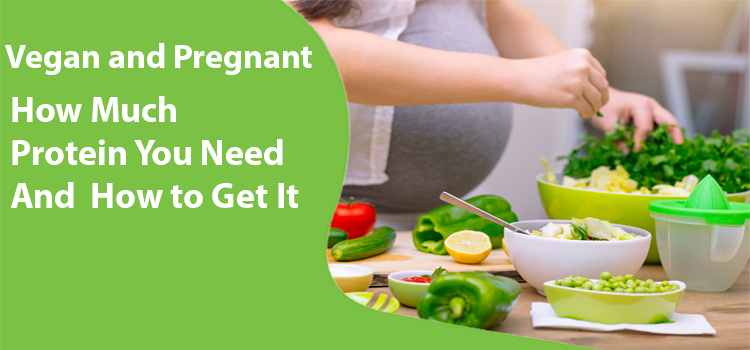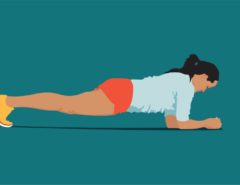Veganism has become increasingly popular. And more and more people are choosing that lifestyle. This includes women and of course, pregnant women too. If you are vegan and pregnant, you need to know how to ensure optimal protein intake.
Typically, a vegan diet excludes all types of animal products and emphasizes wholes foods such as legumes and veggies. This particular eating regimen is linked to many health benefits. It is also known to lower the risk of heart disease and type 2 diabetes.
However, veganism has been criticized historically for lacking important nutrients. Especially in the sensitive life stages such as pregnancy. But is veganism really not safe in pregnancy? Let’s find out!
Is it Safe to be Vegan and Pregnant at the Same Time?
As mentioned already, people have shown their concern about the safety of the vegan diet and nutrient deficiencies during pregnancy. Historically and even now. You will also come across strange myths like it affects blood circulation, which has already been busted.
So, if you are trying to determine a straightforward answer to whether a vegan diet is safe for pregnant women and their babies, the answer is, Yes!
However, since proteins and nutrients such as iron, iodine, calcium, omega-3 fats, zinc, and others are crucial during pregnancy, pregnant and vegan women have to be extra particular about their diet. Because the vegan diets are generally low in these nutrients. And critical low levels of nutrients are not like casual Keto diet mistakes. It can have detrimental effects.
Continuing with the same old vegan diet can endanger the health of both, mother and infant. It can also lead to pregnancy complications. This is now an established fact that if the vegan diet provides the right amounts of protein and all other nutrients, it is as perfect and healthy as any other conventional diet with eggs, meat, and dairy is.
Moreover, interestingly, vegan pregnant women have a lower risk of cesarean section (C-section), postpartum depression, high blood pressure, infant or maternal mortality, and so on. Based on these facts, many nutrition societies in the United States and the world have backed the safety of veganism during pregnancy.
Protein and Veganism
Health experts agree that veganism during pregnancy requires good planning and careful monitoring of protein and nutrient intake. There should be a focus on nutrient-rich and diverse foods. Incorporate fortified supplements and foods into the diet.
When it comes to protein, it has a primary role in your body. Proteins link to so many body functions and organs. They are responsible for the structure of your bones and muscles. In addition, they ensure the proper functioning of your immunity system and facilitate proper food digestion.
Moreover, many hormones in our body are made from protein. And adequate amounts on protein in the body helps in promoting healthy hair, skin, and nails. Therefore, if you are conscious about skincare during pregnancy, keep your protein intake optimal.
Protein is also critical for the baby’s growth, building his muscles, and bones.
How Much is Enough Protein?
So, the question now is how much protein is enough? Instead of constantly worrying about whether you are managing to get enough protein, get your facts right.
According to the most current recommendations, pregnant women are supposed to get 25 grams more of protein per day in their second and third trimesters. This makes it 71 grams a day. Non-pregnant vegan women consume 65 grams of proteins daily.
If you are consuming a diverse diet with a good combo of protein-based sources such as beans, soy products, and grains and you have a healthy weight gain during pregnancy, then there’s nothing to worry about. However, if you are a mommy of twins, you need to add 50 grams of proteins to your diet.
A simple hack to consume more protein would be eating more of what you already ate. For instance, add a cup and a half of tofu or lentils, or eat 2 bagels, or drink an extra cup of soymilk to make up for the extra protein diet that you need.
Popular Protein Sources for Vegan Diet
To the advantage of vegans, the list of vegan food options without protein is way shorter than that with protein supply. You can rely on both, plant-based and vegan diet. Here are some of the best sources of protein:
- All varieties of beans. Such as adzuki, nuts, grains, and seeds.
- Seed butter and nut butter.
- Veggies, especially potatoes.
- Soy foods.
- Meat analogs (the products, which resemble meat).
- Seitan or wheat meat.
- Chickpeas.
- Split or green peas.
- Quinoa.
- Kidney, black, navy, or pinto beans.
- Oatmeal.
- Buckwheat, bulgar, and whole wheat couscous.
- Tofu.
- Walnuts, pistachios, almonds, cashews, Brazil nuts, pine nuts.
Chances are that you are already feasting on most of these and getting a decent amount of protein. But if you are not, you can consult the aforementioned list. Make sure you put in the effort to keep your protein intake optimal and keep stress symptoms at bay.
Moreover, keep an eye on your weight gain during pregnancy and make sure you are consuming enough calories. Not gaining enough weight means, you are not consuming enough calories. And if that’s the case, the proteins you are taking are used primarily to keep the body functions run smoothly instead of building the baby’s muscles.
So, if you are vegan and pregnant, then take advantage of this guide and ensure a healthy pregnancy. Good luck!




